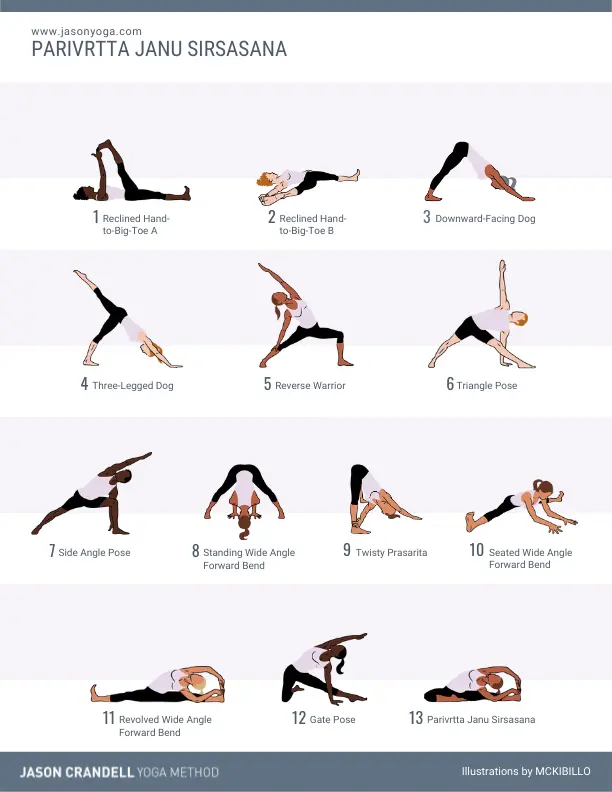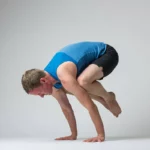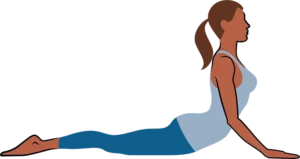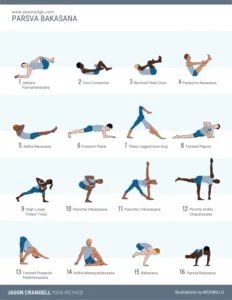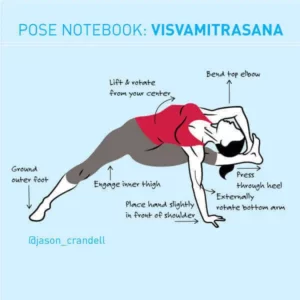WHY THE PARIVRTTA JANU SIRSASANA SEQUENCE WORKS
Nothing beats a good side-bending practice. And, truthfully, the recipe for the classic posture Parivrtta Janu Sirsasana is simple: the practice needs to focus on stretching the hamstrings, adductors, and the sides of the torso (which are largely comprised of the lats, obliques, and the quadratus lumborum). The sequence above sticks to these three basic focal points.
Let’s break it down a little further:
POSES 1–2
What could be better than resting on your back and stretching your hamstrings and adductors? Not much. Supta Padangusthasana A & B are simple, effective, energy-saving postures that target your hamstrings and adductors and allow you to transition into your practice gently.
POSES 3-4
You really can’t go wrong with Down Dog and Three-Legged Down Dog. You can use them in nearly any sequence, but I like them here because they continue the work of stretching your hamstrings, they lengthen your spine (which is helpful in side bends), and they provide a smooth transition from reclined to standing postures.
POSES 5-7
This combination of postures flows together smoothly and builds on the work of you’ve already established by opening your side body. An important note here is that most students will only receive a mild stretch in their side body in these postures. This is ideal sequencing because you don’t want the first side bends in a sequence to be intense or abrupt. Most students don’t spend a ton of time working their side bends, so the muscles involved (lats, obliques, and quadratus lumborum) need to be prepared slowly.
POSES 8-9
These postures hone in on the hamstrings, adductors and side body. At this phase of the sequence, you’re going more deeply into the targeted areas of this practice.
POSES 10-13
This progression of poses takes you deeper and deeper into your hamstrings, adductors, and side body. If you have more flexibility, you can bend your bottom elbow and take it to the floor in gate pose (pose 12). Once you arrive in Parivrtta Janu Sirsasana, remember to bend your top elbow and lean your upper-body slightly back. Breathe into the side of the waist you’re stretching and savor the pose. If you’re stuck and struggling, there’s a 99% chance that the restriction is in your hamstrings and adductors. If this is the case, be diligent with the first 8 postures of this sequence for a few more months.
{illustration by MCKIBILLO}
Want more sequences by Jason?
Sign up to join our newsletter and we’ll send you our e-book:
30 Essential Home Practice Sequences.
